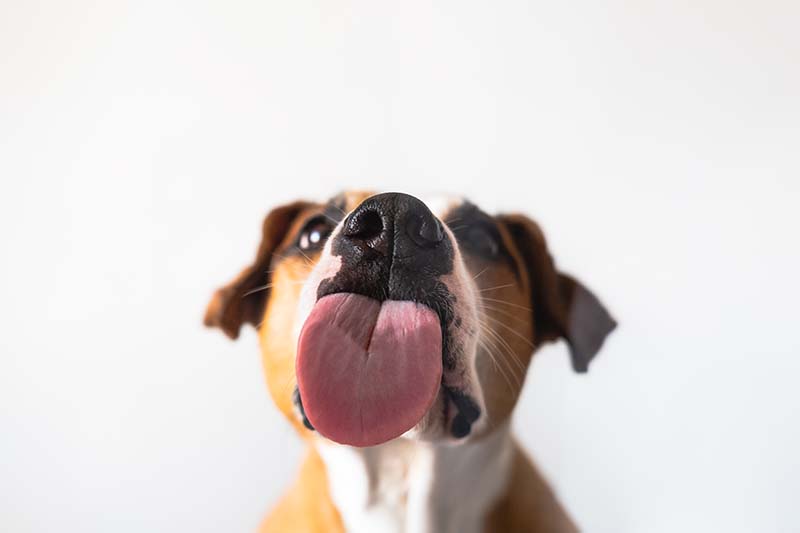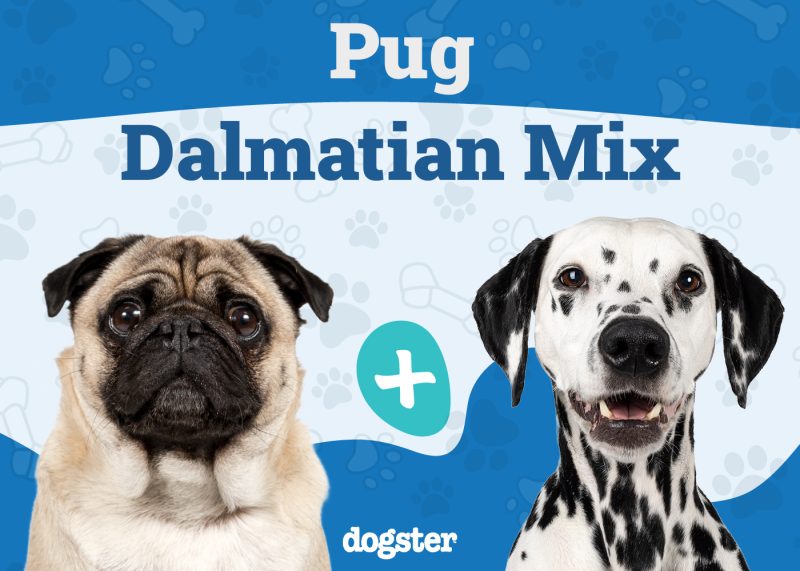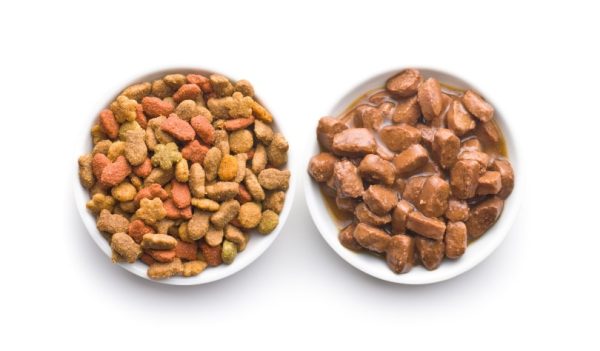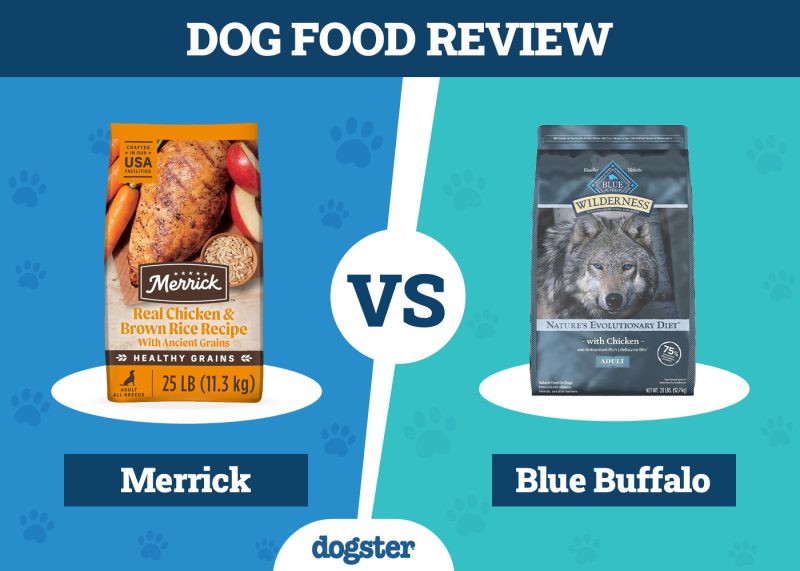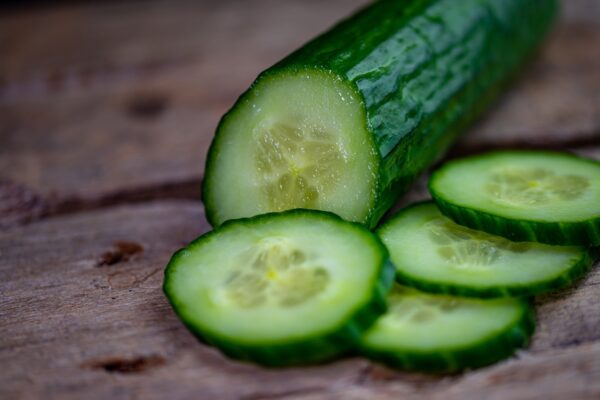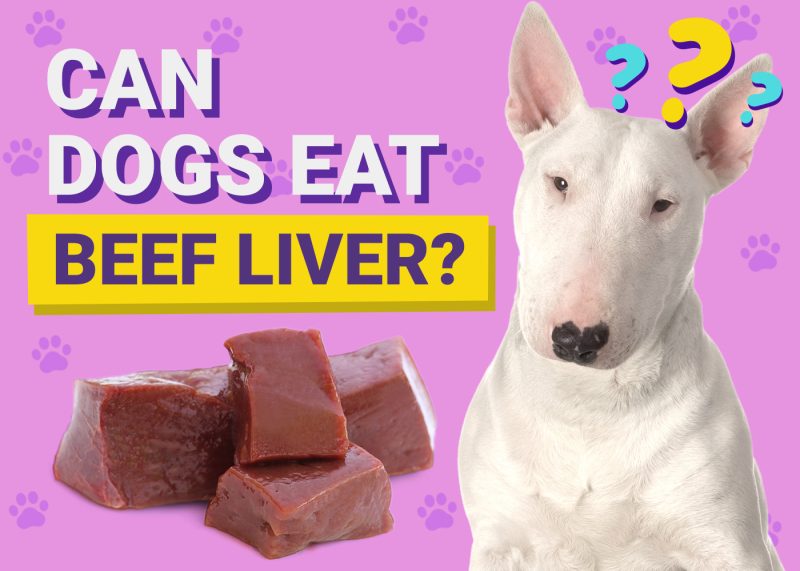In this article
Dogs, our loyal and quirky companions, often engage in peculiar behaviors that leave us both amused and perplexed. One such puzzling habit is their inclination to lick non-food items, including the ever-present couch in our homes.
While occasional couch licking might seem harmless, it’s crucial to recognize that excessive and compulsive licking of non-edible objects could be indicative of underlying medical issues in our furry friends.
Below, we’ll dive into all the reasons your dog may decide to lick the couch. Some of these are completely harmless, while others may call for more careful veterinary attention.

The 9 Possible Reasons Why Dogs Lick the Couch
1. Exploration
Dogs use their mouths to explore their surroundings. Therefore, it is not uncommon for them to lick things out of curiosity. While they may explore with all of their senses, they tend to explore most with taste. That’s one reason why dogs like to chew on things.
If you have a new couch, your dog may be exploring the texture and taste by licking it. Usually, this behavior will stop after a few weeks once the couch is no longer “new.” Licking is one of the easiest ways they can learn about the world around them.
This behavior is particularly common in puppies, who tend to be more curious than adult dogs.
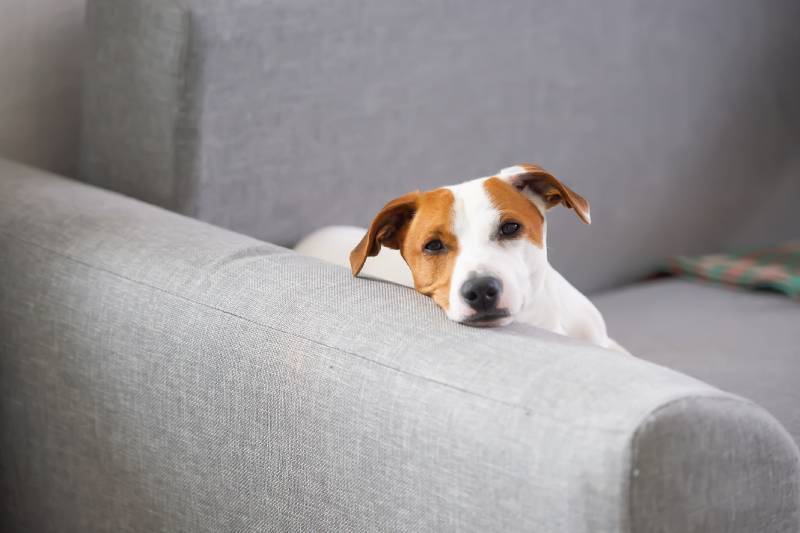
2. Salt and Other Residue
Couches can retain traces of salt and other tastes from anything that was spilled or eaten on them. Even if your couch looks perfectly clean to you, your dog may detect the residues and lick them off.
Dogs may even like the saltiness that comes from sweat, which may prompt them to lick where someone has been sitting. The salty taste might entice them to lick the couch as a way to enjoy a little snack or treat.
3. Attention Seeking
Most people don’t like it when their dog licks the couch. If the dog is regularly scolded for licking the couch, they may learn that licking gets them attention. In this way, the licking can turn into an attention-seeking behavior. While you might think that negative attention wouldn’t excite your dog, for many canines, any attention is good attention.
The best way to correct this behavior is to stop paying attention to your dog when they lick the couch. It is a good idea to reach out to a veterinarian or behaviorist to get advice on how exactly to deal with this behavior.
If you need to speak with a vet but can't get to one, head over to PangoVet. It's our online service where you can talk to a vet online and get the advice you need for your pet — all at an affordable price!

4. Grooming Instincts
Licking is a very natural behavior for dogs. In the wild, wolves and other canine species will lick each other as a way to establish social bonds. Licking also helps dogs stay clean, similarly to cats.
Domestic dogs still retain these instincts, and sometimes they can be directed at things that don’t make much sense—like the couch. Sometimes, a dog may start by licking itself and then shift to licking the couch. Other times, dogs may find grooming relaxing and start licking the couch for this reason.
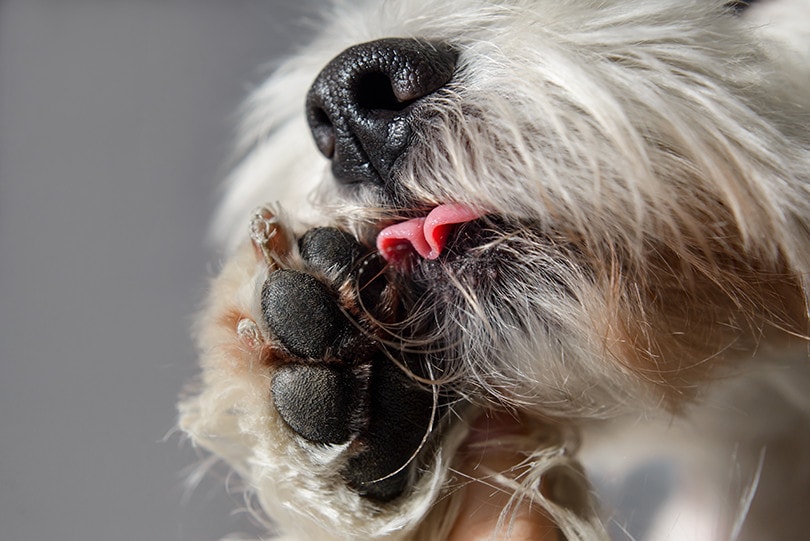
5. Boredom or Anxiety
Licking can be a self-soothing behavior for dogs, especially when they are feeling bored, anxious, or stressed. It releases endorphins, which can help them feel more relaxed and alleviate their negative emotions. Dogs with more anxious temperaments may do more couch licking for this reason.
If a dog is left alone for extended periods or lacks mental and physical stimulation, they may resort to licking the couch as a coping mechanism to pass the time or deal with their boredom, too. Sometimes, dogs just want something to do, even if that something is as simple as licking the couch.
6. Taste and Texture Preference
Some dogs simply like the way the couch tastes or feels. They may like the upholstery on the couch and lick it simply because they want to. Often, this sort of behavior starts out for a different reason, and then the canine figures out that the couch actually feels good.
This behavior can become habitual if the dog continues it for some time.
7. Salt Deficiency
In rare cases, dogs may exhibit a condition called “pica,” where they consume non-food items. This behavior can be associated with nutritional deficiencies, such as a lack of certain minerals like sodium. If a dog feels an instinctual need to obtain salt from the couch or other non-food sources, they might lick it in an attempt to satisfy this nutritional requirement.
If your dog is eating professionally-formulated dog food, they should be getting all of the salt they need. However, some dogs may require more salt for one reason or another.
If you think this may be the cause behind your dog’s licking, we recommend speaking to a vet. They can run tests to determine if your dog is low on salts and provide treatment plans to ensure your dog is getting everything they need.
If you need to speak with a vet but can't get to one, head over to PangoVet. It's our online service where you can talk to a vet online and get the personalized advice you need for your pet — all at an affordable price!
8. Emulation
In rare cases, dogs may observe other dogs touching or licking the couch and decide to copy them. Dogs are known to mimic people and other dogs. Therefore, if you have one dog in the household that licks the couch, the others may start performing the same behavior (especially if they notice the other dog getting attention for it).
If you have small children, they may also notice them putting their mouths on the couch. In these cases, the dog may decide to copy them, as well.
9. Medical Issues
While it is not the most common reason, excessive licking of non-food items, including the couch, could be a sign of an underlying medical problem. Some dogs may engage in this behavior due to gastrointestinal issues or disorders like obsessive-compulsive disorder (OCD).
If a dog exhibits compulsive or repetitive licking behavior, especially if it is accompanied by other concerning symptoms, it is crucial to seek veterinary advice to rule out any medical conditions and determine the appropriate course of action. Often, these medical conditions require treatment before the licking will resolve.
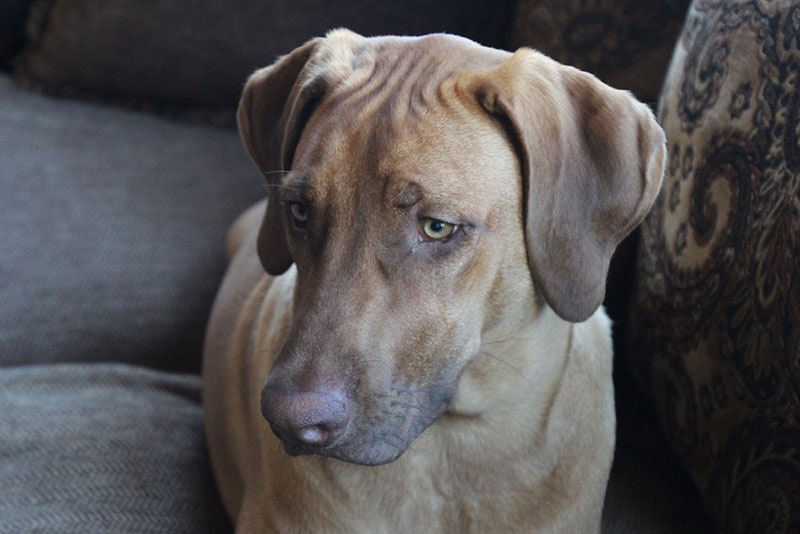

How Do I Get My Dog to Stop Licking the Furniture?
To make your dog stop licking the furniture, you’ll need to determine the underlying reason and make corrections from there. For instance, if your dog is licking the couch because they are bored, you can usually stop the behavior by providing more mental stimulation. Similarly, if your dog has an underlying medical reason for this behavior, taking them to see the vet and get treatment is vital.
Other times, you’ll simply need to train your dog not to lick the couch. If the behavior is compulsive or occurs simply because your dog likes to lick the couch, training is your best option. Luckily, you can train them to avoid licking the couch just like you train your dog to do anything else—with lots of praise and treats.
Sometimes, you may need to keep your dog away from the couch, providing them with an alternative space to rest. If your dog cannot sit on the couch without licking it, it may be better not to have them up there at all.


Conclusion
Dogs may lick your couch for all sorts of reasons. Sometimes, your dog may simply enjoy licking the couch, whether it is because of the texture or taste. Most of the time, couch licking is a harmless behavior that’s driven by exploration and taste preferences.
However, you should be vigilant about excessive and compulsive licking, which can indicate an underlying problem. Stress can cause couch licking, as grooming is a natural way for dogs to combat anxiety.
You may need to make some lifestyle changes, such as offering your dog more mental stimulation or exercise. Other times, medication may be necessary. Rarely, couch licking can indicate a more serious health condition that requires treatment.
See Also:
- Why Is My Dog Licking Their Butt A Lot? Vet Reviewed Reasons
- Why Do Dogs Lick Themselves? Vet Approved Facts & FAQ
Related reads:
- How Powerful Is a Dog’s Nose? The Fascinating Answer!
- Separation Anxiety in Dogs: 10 Vet-Reviewed Signs
Featured Image Credit: Aleksey Boyko, Shutterstock
